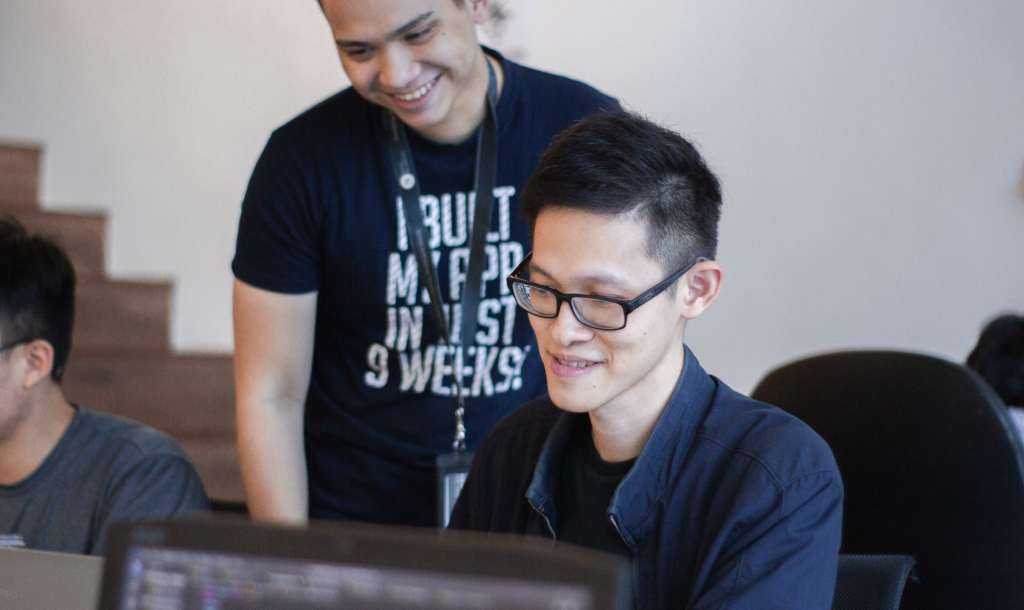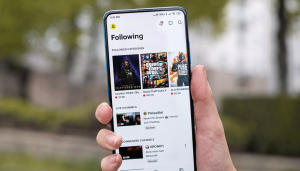Insights on Remarkability: How Successful People Grow – Lessons from Gary Vaynerchuk and Guy Kawasaki
In a world constantly chasing the next big thing, what does it truly mean to be remarkable?
Is it about standing out from the crowd, accumulating wealth, or something deeper?
In a recent episode of Gary Vaynerchuk’s podcast, entrepreneurial legend Guy Kawasaki shared invaluable insights from his latest book, “Remarkable People,” and his experiences interviewing over 250 notable individuals on how successful people grow.
Gary Vaynerchuk, the social media mogul and CEO of VaynerMedia, is known for his no-nonsense approach to business and his uncanny ability to predict digital trends.
Guy Kawasaki, on the other hand, made his name as the chief evangelist of Apple and has since become a revered author, speaker, and venture capitalist.
This blog post dives into the key takeaways from their engaging conversation, offering a masterclass on how successful people grow and achieve remarkability.
The Evolution of Remarkability

Guy Kawasaki kicked off the discussion by explaining the inspiration behind his book. After interviewing hundreds of remarkable people, he noticed a common thread:
“Initially, I thought being remarkable was about standing out, being different, or just getting noticed,” Kawasaki explained.
“But as I delved deeper into these conversations, I realized something profound: truly remarkable people all share one key characteristic –
they make the world a better place.”
This realization led Kawasaki to redefine remarkability not just as being different or noticeable but as making a positive impact on the world. He elaborated on this concept, citing examples from his interviews:
- Bryan Stevenson: His work in criminal justice reform has literally saved lives and brought attention to systemic inequalities.
- Jane Goodall: Her groundbreaking work with chimpanzees not only advanced our understanding of primates but also promoted wildlife conservation.
- Arianna Huffington: Beyond building a media empire, she’s advocated for wellness and work-life balance, influencing corporate culture globally.
“Remarkable people make the world a better place. It’s not about being strategic or different; it’s about making a positive impact.” – Guy Kawasaki
Gary Vaynerchuk echoed this sentiment, emphasizing that true remarkability comes from genuine actions rather than calculated PR moves.
The Power of Grit and Perseverance

Both Vaynerchuk and Kawasaki agreed on the crucial role of grit in achieving success. They shared stories of individuals who succeeded not because of innate talent but through sheer determination and hard work.
Kawasaki highlighted Jane Goodall as a prime example:
“Despite lacking formal education in her field, Goodall’s passion and persistence led her to become one of the world’s foremost experts on chimpanzees,” he said.
“She faced numerous challenges, including skepticism from the scientific community, but her grit allowed her to persevere and make groundbreaking discoveries.”
Vaynerchuk added his own perspective from the business world:
I’ve seen countless entrepreneurs with brilliant ideas fail because they couldn’t handle the day-to-day grind,” he explained.
“On the flip side, I’ve seen people with average ideas build empires through sheer force of will and hard work.”
The Rise of Grace in Business
An exciting shift both entrepreneurs noted was the growing importance of grace and kindness in the business world.
“The most successful companies are often those that prioritize employee wellbeing, customer satisfaction, and social responsibility.” Vaynerchuk observed
Kawasaki agreed, adding that remarkability often stems from a combination of grit and grace with examples of leaders:
Satya Nadella, Jacinda Ardern, and Yvon Chouinard, who’ve achieved great success while maintaining a reputation for kindness and integrity.
Traits of Remarkable People

Among those who sought how successful people grow, Kawasaki identified several common traits through his extensive interviews:
- Growth Mindset: A willingness to learn and adapt continuously. “Remarkable people never stop learning,” Kawasaki explained. “They view challenges as opportunities for growth.”
- Intellectual Curiosity: An insatiable desire to understand more about the world. Vaynerchuk added, “The most successful entrepreneurs I know are constantly asking questions, always seeking to understand more.”
- Resilience: The ability to bounce back from failures and setbacks. Kawasaki shared, “Every remarkable person I interviewed had faced significant failures. What set them apart was their ability to learn from these experiences and keep moving forward.”
- Purpose-Driven: A clear sense of mission beyond personal gain. “The most remarkable people are driven by a purpose larger than themselves,” Vaynerchuk noted. “This gives them the motivation to persist through challenges.”
- Empathy: The capacity to understand and share the feelings of others. Kawasaki emphasized, “Empathy allows remarkable people to connect deeply with others and understand different perspectives, which is crucial for making a positive impact.”
Vaynerchuk added that in his experience, truly remarkable people often possess a unique combination of confidence and humility.
The Challenge of Entitlement
Both speakers expressed concern about the growing sense of entitlement they’ve observed, particularly among younger generations.
Drawing from their humble beginnings, they emphasized the value of hard work and earning one’s success.
However, they also acknowledged the unprecedented opportunities available to today’s youth, especially in the digital age.
Vaynerchuk noted that while entitlement can be a problem, the ability to create and distribute content globally presents enormous potential for those willing to put in the effort.
The Impact of the Digital Age

The conversation turned to how the digital landscape has transformed the path to success.
Kawasaki and Vaynerchuk agreed that while the internet has democratized opportunity, it has also increased competition.
Vaynerchuk emphasized the importance of authenticity in the digital space:
“In a world where everyone can create content, being genuine is your biggest differentiator. People can smell fakeness from a mile away.”
Kawasaki added that the digital age has made it easier than ever to make a positive impact, citing examples of individuals who have used social media to drive meaningful change.
The Role of Philanthropy and How Successful People Grow
Both entrepreneurs stressed the importance of giving back and making a positive impact. They agreed that true philanthropy isn’t about recognition but about creating meaningful change.
Kawasaki shared stories of remarkable individuals who have dedicated their lives to solving global problems:
- José Andrés of World Central Kitchen, providing meals in the wake of disasters.
- Scott Harrison of Charity: Water, who’s bringing clean water to developing nations.
- Leila Janah of Samasource, who created digital work opportunities for people in impoverished areas.
Vaynerchuk added that in today’s world, businesses that prioritize social impact often outperform those focused solely on profit.
Advice for Aspiring Entrepreneurs

The podcast segment concluded with both Vaynerchuk and Kawasaki offering advice for those striving to be remarkable:
- Focus on Impact: Prioritize making a positive difference in the world. Kawasaki explained, “Ask yourself: How does my work improve people’s lives?”
- Embrace Failure: If you wonder how successful people grow – View setbacks as learning opportunities. Vaynerchuk shared, “I’ve learned more from my failures than from my successes. Don’t fear failure; fear not trying.”
- Stay Curious: Never stop learning and growing. “The world is changing faster than ever,” Kawasaki noted. “Continuous learning is no longer optional; it’s a necessity.”
- Be Authentic: Stay true to your values and vision. Vaynerchuk emphasized, “In a world of noise, authenticity cuts through. People connect with real stories and genuine personalities.”
- Practice Empathy: Understand and consider the perspectives of others. “Empathy is not just a moral imperative,” Kawasaki said. “It’s a crucial skill for understanding your customers, employees, and partners.”
Kawasaki emphasized the importance of finding one’s unique path:
“Don’t try to be the next Steve Jobs or Elon Musk. The world needs you to be you.”
Vaynerchuk concurred, adding that how successful people grow often comes from leveraging one’s unique strengths and perspectives.
“The most successful entrepreneurs I know have found a way to turn their quirks and passions into their competitive advantage,” he explained.
Both stress the importance of resilience and long-term thinking. “Overnight success is a myth,” Vaynerchuk said. “Be prepared for a marathon, not a sprint.”
Kawasaki added a final piece of advice: “Remember that remarkability isn’t just about what you achieve, but about the positive impact you have on others along the way.”
The Path to Remarkability and Success

This insightful discussion between Gary Vaynerchuk and Guy Kawasaki offers valuable lessons on what it truly means to be remarkable.
It challenges us to focus on personal growth, maintain our grit, embrace grace in our interactions, and strive to make a genuine difference in the world.
As we navigate our paths to success, let’s remember that remarkability isn’t about fame or fortune but about the positive impact we can have on others and the world around us.
By cultivating the traits of remarkable people – resilience, curiosity, empathy, and a growth mindset – we can all work towards becoming genuinely remarkable in our unique ways.
In a world full of noise and competition, the path to standing out is clear: make a positive impact, stay authentic, and never stop growing.
As both Vaynerchuk and Kawasaki would agree, that’s the true essence of remarkability and how successful people grow.
(Source: The GaryVee Audio Experience with Guy Kawasaki)




